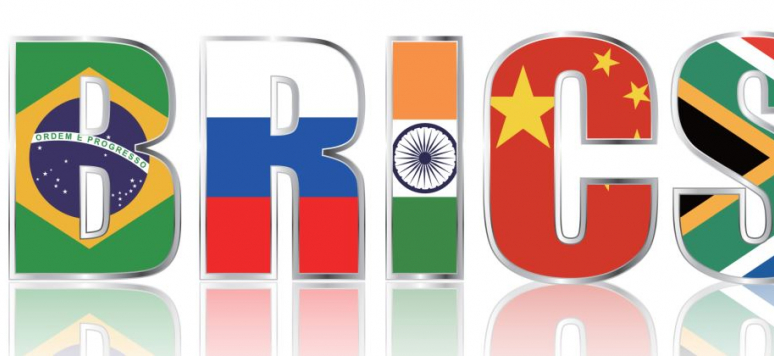Russie.Eurasie.Visions - The Illusion of Convergence—Russia, China, and the BRICS Russie.Nei.Visions, No. 92, March 2016

The discussion about the BRICS (Brazil, Russia, India, China, and South Africa) opposes two narratives. The first considers they play an increasing role in the international relations as the West is loosing power; the other sees the BRICS as a charade. But the key role played by the interaction between Russia and China is an evidence shared by most experts.
Two narratives have dominated discussion of the BRICS (Brazil, Russia, India, China, and South Africa). The first asserts that this group of countries has become a major force in 21st century international politics, highlighting the shift of global power from the West. The second, by contrast, sees the BRICS as a charade, marked by the gulf between extravagant rhetoric and minimal achievement. The debate could scarcely be more polarized. Yet on one point there is convergence: the key to the viability of the BRICS framework lies in effective interaction between its two principal players, Russia and China.
Moscow and Beijing have assiduously promoted an image of likemindedness within the BRICS. But such efforts can hardly mask significant differences in attitudes and approach. President Putin identifies the BRICS as the foundation of a non-Western multipolar order in which Russia plays a central role. For the Chinese, however, it is a sideshow – only one among many instruments for advancing their interests in Eurasia and beyond. These contrasting perspectives severely limit the potential of the BRICS to offer an alternative model of global governance or act as an effective engine of international development. While the BRICS will remain part of the international landscape over the next few years, its relevance will come under increasing question.
Bobo Lo is an independent analyst. He was previously Director of the China and Russia Programmes at the Centre for European Reform; Head of the Russia and Eurasia Programme at Chatham House; and Deputy Head of Mission at the Australian Embassy in Moscow. He is an Associate Fellow of Chatham House’s Russia and Eurasia Programme, and an Associate Research Fellow with the Russie/NEI programme of the French Institute of International Relations (IFRI). Bobo Lo has an MA from Oxford and a PhD from the University of Melbourne.
